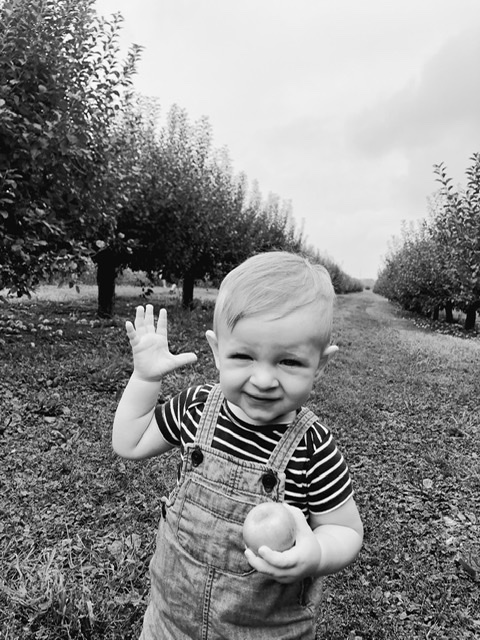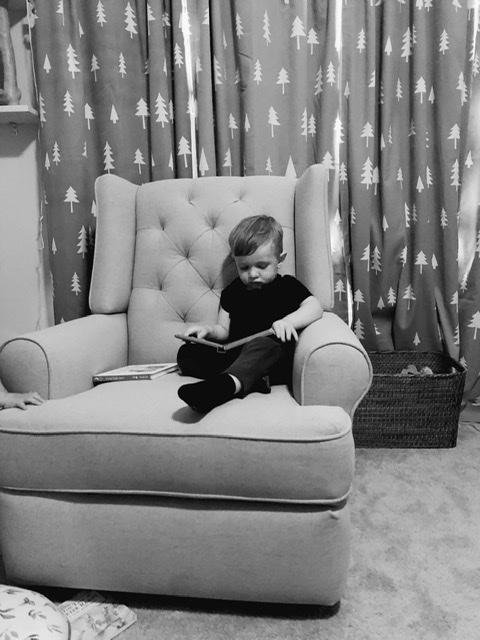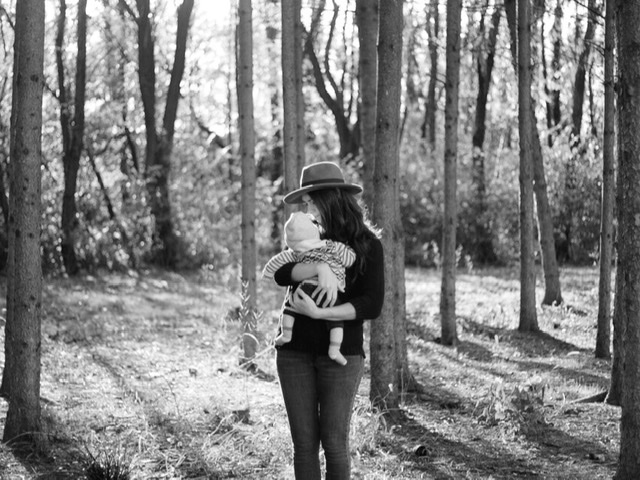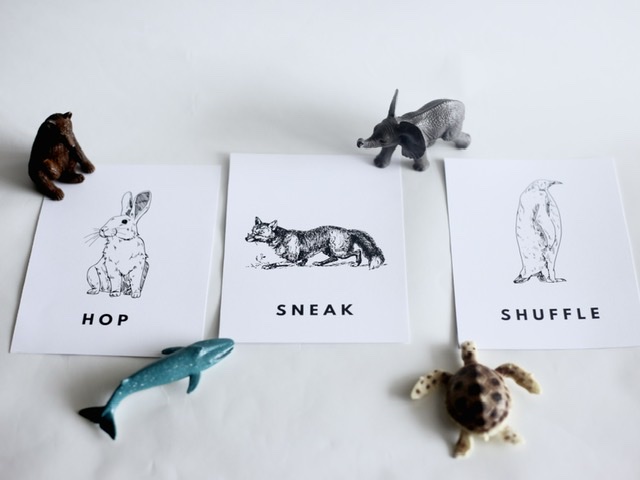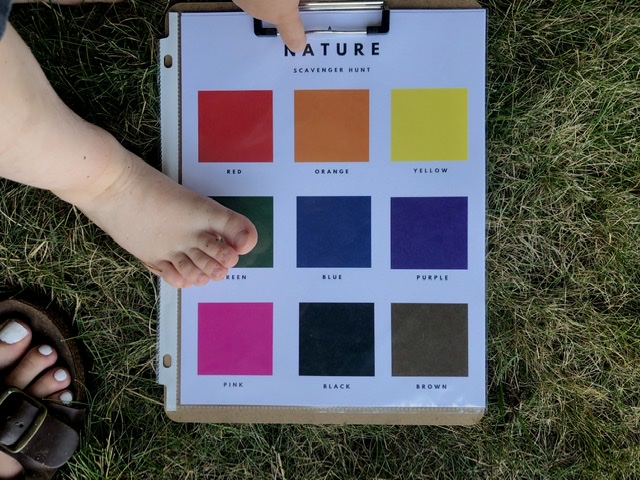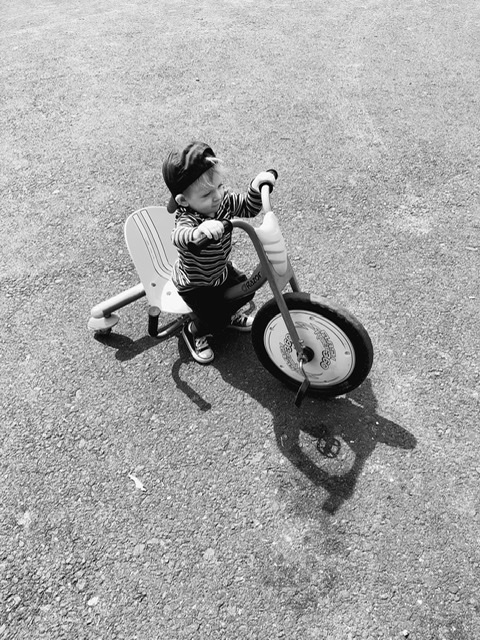
“Children, more than ever, need opportunities to be in their bodies in the world—jumping rope, bicycling, stream hopping, and fort building. It’s this engagement between limbs of the body and bones of the earth where true balance and centeredness emerge.“
—David Sobel
Throughout history, humanity has seemed to wrestle a great deal with our physicality. Some have tried to deny it altogether. Some have deemed it “less than” the other aspects of our humanity. Some have given perhaps too much power to the physical self and its preferences. There’s certainly a delicate balance to living in appropriate relationship with our physical selves. But it’s an undeniable aspect of being human and it’s important for us to model and communicate the goodness of our physicality in a culture that seems to treat the body as both idol and enemy.
In the early years with a child, there is heavy importance placed upon physical development and growth: proper weight gain and nutrition, proper large and fine motor skills, etc.. And yet it’s often something imposed on the child without teaching a sort of self-motivating philosophy of physical wellness. What I wanted for Graham from an early age was for him to value the gift of his physical existence. Will he choose chocolate over vegetables? Probably every time, because he’s two. But does he understand that certain foods hold more nutritional value and help us stay healthy and strong, that certain foods have a little more life to give us than others? I think so. And if he doesn’t completely grasp it yet, he’s certainly on the path to such an understanding. I find that we often underestimate what children are capable of grasping.
Our own experience has been a back and forth dance of discipline and a celebratory spirit. It’s not about hard and fast rules, but about learning to listen to our bodies and recalibrate when necessary. Ultimately, the most useful thing we can teach our children is how to listen to what their specific body is requesting. Right now my own body is saying, ”Less coffee, more water. More fruits and vegetables, fewer bagels. More rest, less screen time.” Not because any of these things are the definitive ”right” way, but because we feel more alive when we listen to our body’s requests.
I wanted to instill in Graham an appreciation for his body. I wanted to teach him to start from a place of gratitude and then move to a place of discipline. We celebrate our strength and the experiences having a physical body affords us. The fact that we are physical creatures opens us up to experience sounds and tastes, sights and smells. It allows us to experience embraces and thrills of adrenaline. We rely on our bodies for both work and play. They are gifts bestowed upon us to be ushers of goodness and life in the world.
When we tend to our physical selves, we simultaneously improve our emotional, social, spiritual, mental selves as well. We can regulate hormones by moving our bodies that give us better emotional stability. We can interact with others with greater confidence when we’re taking care of ourselves. We can feel a sense of belonging with the rest of the physical world. We can think with greater clarity when we are rested and nourished. All the parts of ourselves are intertwined and work as one. And so when we seek to improve one part of ourselves, our efforts are often greater than the sum of its parts.
PHYSICAL GROWTH | IN PRACTICE
- Movement—Our bodies require movement to function properly. In the same way that our bodies benefit from a diet which supplies a variety of nutrients, they also benefit from a variety of movements. Proper movement helps to maintain hormone levels and build muscular strength.
- Large Motor Activities
- Fine Motor Activities
- Nourishing Food—It’s a gift that food can bring us such delight. And yet, it’s important to remember that its primary function is nourishment. And so we allow the sweets and try hard not to attach morality to food, but recognize that different foods hold different nourishment and it’s important to eat predominantly the ones that give us what we need before consuming empty foods.
- Hydration
- Good Rest
- Daily Life and Hygiene—This includes building habits and rhythms for taking care of things like:
- Teeth Brushing
- Hair Combing
- Hand Washing
- Moisturizing
- Awareness of Ourselves in Relationship to the Rest of the Physical World—It is common to feel more relaxed after spending time outdoors. We feel more human when we allow ourselves to exist in our natural element. There is an inexplicable feeling of connection that comes from remembering that we are part of nature, not separate from it.
- Learning to Listen—It is impossible to keep up with all the latest health trends. And it often feels like what was deemed a superfood two years ago is never as good as they thought it was. But the reality is that all of our physical bodies are a little different and our lifestyles require different things of us and so we must learn to sift through the wisdom of others and take what works by listening primarily to our own bodies. This can be practiced by offering your child choices when it comes to movement options or by offering your child healthy foods at meals, but allowing them to decide how much makes them feel full.
PHYSICAL GROWTH | IN REFLECTION
- How do I want my child to feel about their body?
- What sort of movement feels fun a d restorative for me? For my child?
- What food/drink leaves me energized and nourished? Fatigued and unmotivated?
- What do our bodies do for us? What would we miss out on without them?
- What tastes, smells, sounds, feelings, sights do I enjoy?
- What can I do to stay healthy and appreciate my body?
- What do I hope for my child physically? How can I help them develop healthy habits and learn to listen to their own body? How do we get there? What needs to happen in our day to day?
